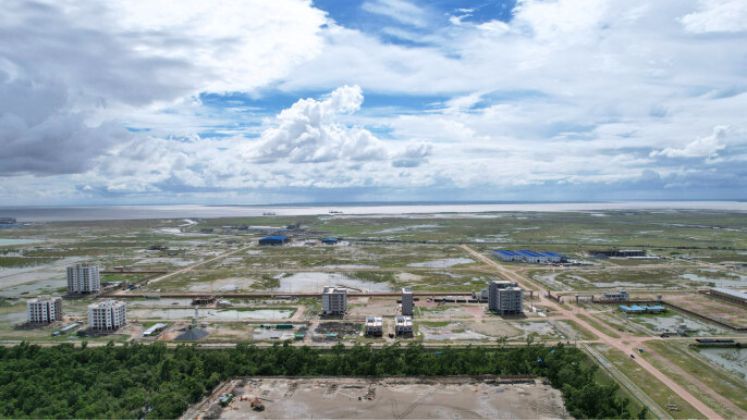
The government of Bangladesh is moving quickly to create an 800-acre Chinese Economic Zone in Anwara, Chittagong, which is expected to cost Taka 4,056 crore, or almost US $ 48 million. Officials from the Bangladesh Economic Zone Authority (Beza) say the project intends to boost the nation’s industrial growth and draw in more Chinese investment.
It is anticipated that a Preferential Buyer’s Credit from the Chinese government will cover US $ 221.18 million, or roughly Taka 2,136 crore, of the project’s overall cost. Beza is asking the finance ministry to approve the remaining Taka 1,920 crore in government money at a 1 per cent interest rate.
According to Chowdhury Ashik Mahmud Bin Harun, Executive Chairman of Beza, the authority is making every effort to expedite the project’s progress. “With the goal of starting construction as soon as possible, we are accelerating approvals from the appropriate government offices. “Once construction starts, a lot of Chinese investors’ worries will be resolved, which will attract more investment,” he said.
This project, called the Supporting Infrastructure Project for Chinese Economic and Industrial Zone (CIEZ), has already been approved by the Office of the Chief Adviser. Construction is anticipated to begin as early as July, pending approval from the Executive Committee of the National Economic Council (Ecnec) and the Finance Ministry. The project entails constructing a central effluent treatment facility, linking roads, a jetty, and other necessary infrastructure.
The Chinese government will be represented by China Road and Bridge Corporation, which will carry out the development on a Government-to-Government (G2G) basis. The project is expected to be finished by June 2029.
Beza has also authorised plans for a second zone in Bhola for a Chinese enterprise and another Chinese-led economic zone in Chandpur, both on a G2G basis.
As a significant industrial hub and a vital platform for Bangladesh’s industrialisation aspirations, the Chinese Economic Zone in Anwara is ideally situated close to important infrastructure, including the seaport, airport, and Karnaphuli River Tunnel. In the larger regional framework that connects the Pacific and Indian Oceans, the initiative seeks to use these resources to foster technical development, industrial clustering, and cross-border trade.
As of September 2024, Chinese investment in Bangladesh was US $ 2.67 billion, with US $ 1.41 billion coming from mainland China and US $ 1.26 billion from Hong Kong, according to Bangladesh Bank. This indicates the strengthening economic connections between the two countries.






